Ardina Hasanbasri on using data to empower gender-focused development
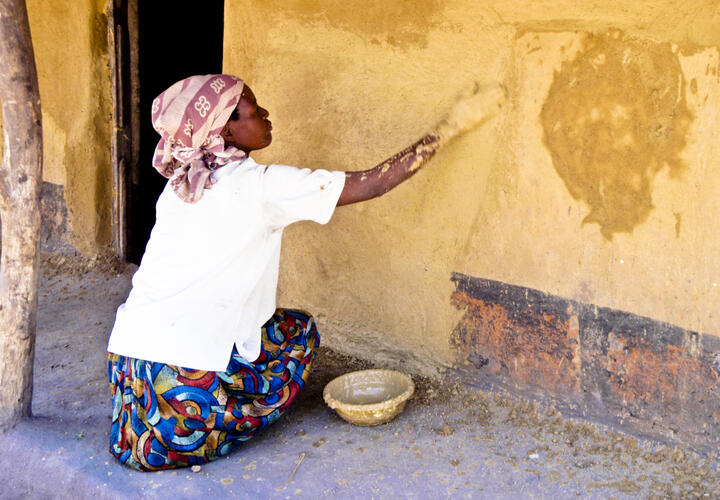
EGC Affiliate Spotlight: Ardina Hasanbasri
Land ownership can be a powerful driver of economic development and women’s empowerment, particularly through its potential to unlock access to credit. In practice, however, full ownership rights – such as the ability to sell, rent, bequeath, and collateralize the land – are not held by certain categories of landowners, most notably women. Across sub-Saharan Africa, for instance, even women who notionally own land often lack full rights due to local customs and gender norms. Researchers often overlook such complexity due to the challenge of finding adequate data. In many contexts this has led to misconceptions about the true gender makeup of landownership and other property rights.
To address knowledge gaps like these, Ardina Hasanbasri – a recently appointed lecturer in economics at the Yale Jackson School of Global Affairs and an EGC affiliate – has been focused on improving survey data to gather better insights on these gender disparities.
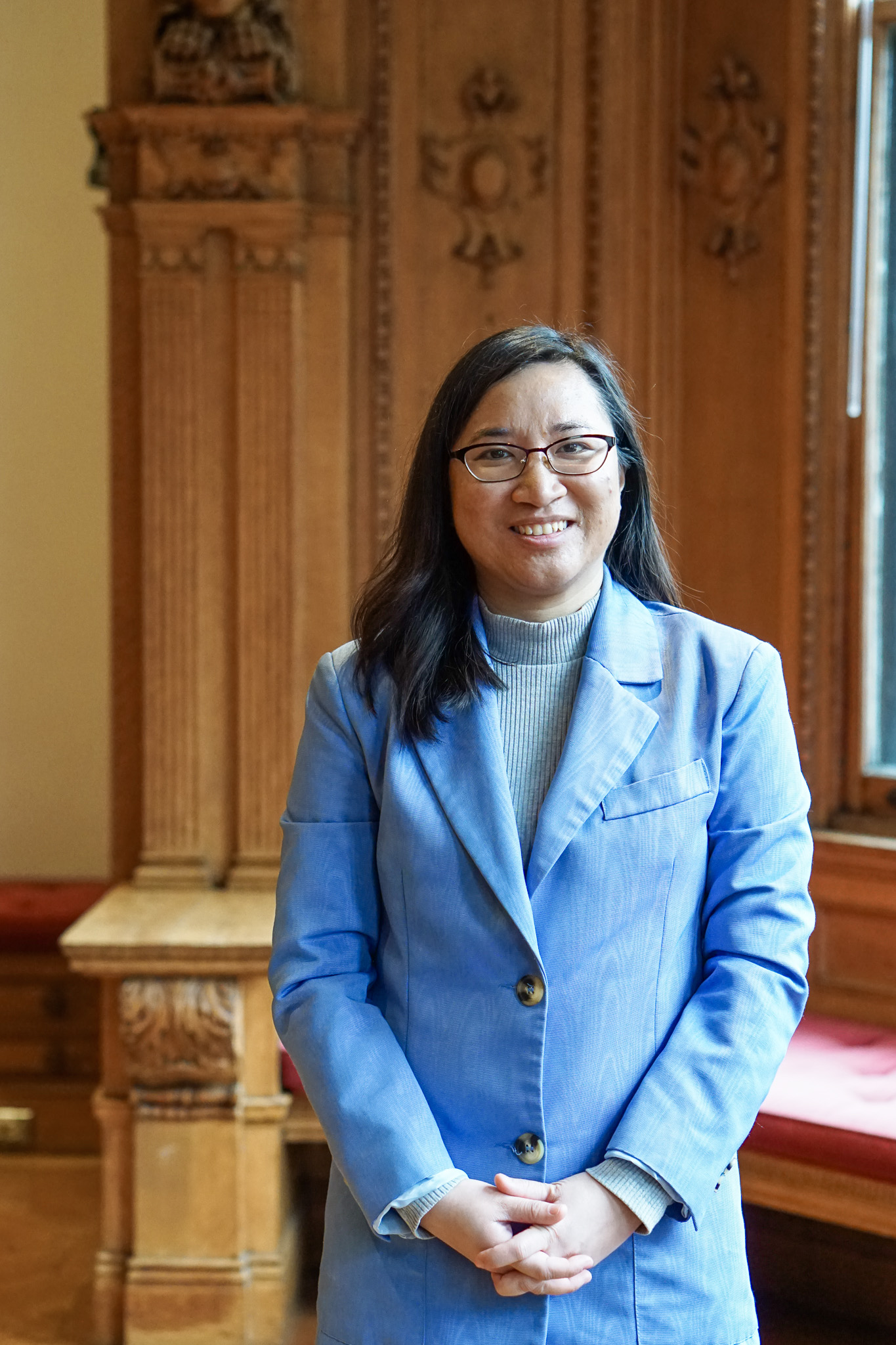
Hasanbasri in Horchow Hall, the home of the Jackson School of Global Affairs. Photo by Zahrah Abdulrauf.
In a recent working paper with the World Bank’s Development Data Group (which will soon be published in the 2023 Journal of Law and Economics), Hasanbasri and coauthors used a series of novel techniques to gain a deeper understanding of landownership in Ethiopia, Malawi and Tanzania. By asking more specific questions about particular land rights, and employing machine learning techniques, the researchers were able to go beyond existing definitions and identify different tiers of ownership. Their effort marked the first data-driven exploration of gender dynamics in land rights in the region, exposing the large gender gaps in female ownership compared to previous research.
This paper is just one example of Hasanbasri’s innovative approach to economics research: her emphasis on matching the survey methodologies to the lived realities of the populations she studies reflects a lifelong interest in how others live and how to promote their economic welfare.
The power of data to unlock stories
Originally from Indonesia, Hasanbasri lived in the United States for a few years while growing up. She noticed sharp contrasts in incomes and living standards between the two countries, and this inspired her first interest in the social sciences. Hoping to someday influence policy and help promote economic growth in Indonesia and beyond, she became interested in the nexus of economics and policy making.
As an undergraduate at the University of Montana, she worked as a research assistant for Professor Ranjan Shrestha, who first introduced her to the use of household surveys in empirical research and data analysis. She soon recognized data’s ability to tell powerful stories about living conditions, institutions, and patterns of development – and those stories’ power to generate original insights about the world. “I enjoy learning about how other people live,” Hasanbasri said in an EGC interview. “The end goal of putting together research and analyzing findings is always to uncover something new.”
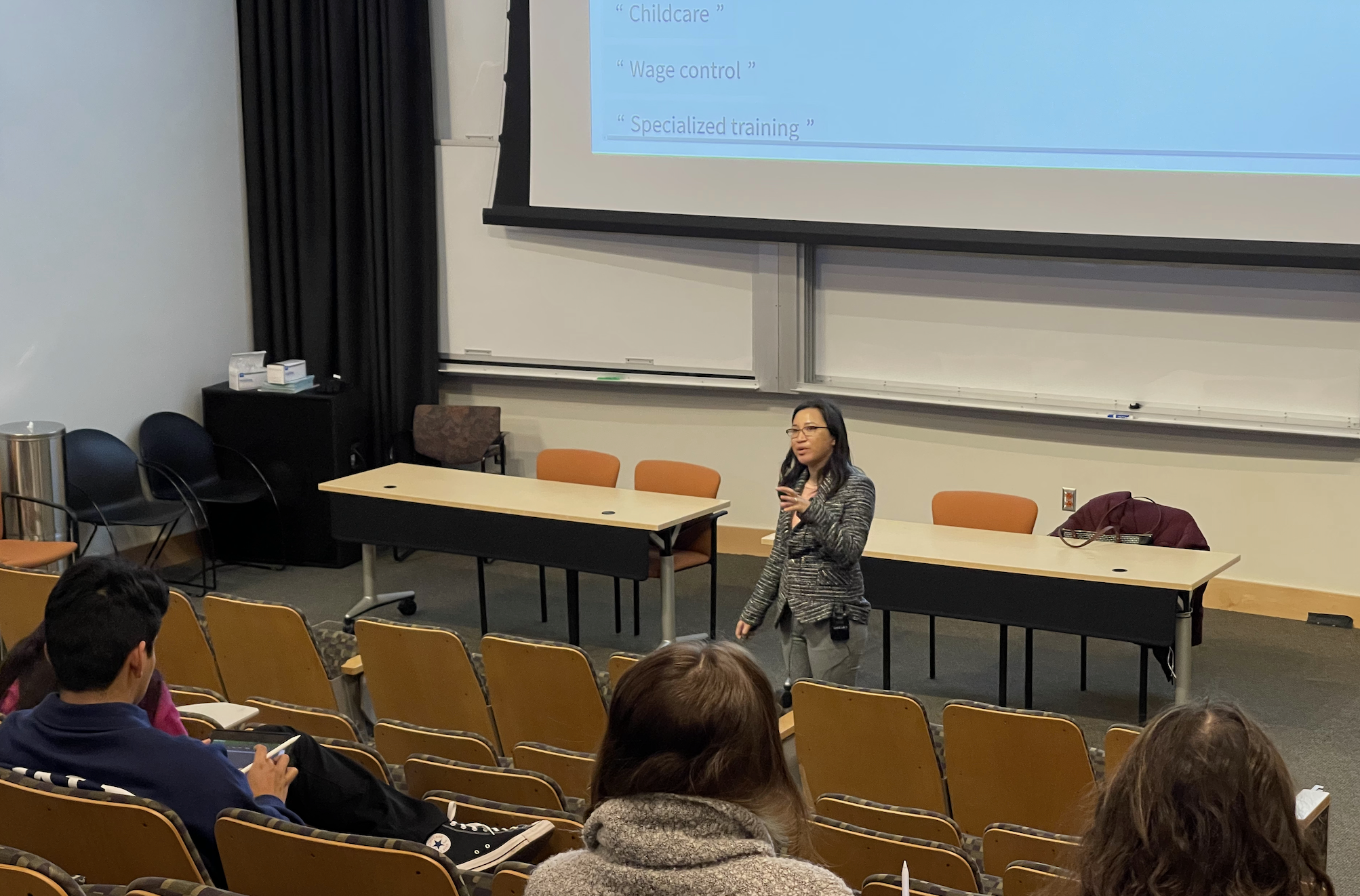
Hasanbasri lecturing the undergraduate course "Approaches to International Development". Photo by Vestal McIntyre.
Hasanbasri pursued a Ph.D. in economics at Washington University in St. Louis, where her research focus on gender and economic development began to emerge. She explored women’s employment decisions in India and studied how religion and caste influenced labor supply choices. After completing her Ph.D., she joined the faculty at University of Michigan, Ann Arbor, where alongside her research efforts she taught economic theory, statistics, and data analytics. Her enthusiasm for storytelling extends beyond her professional life as an economist; she has also published a young adult novel in Indonesia.
Hasanbasri joined Yale in the fall of 2022, with a joint appointment at the Department of Economics and the Jackson School of Global Affairs. “I was attracted to the challenge of helping to build the new Jackson School and the opportunity to be a bridge between economic research and Jackson’s more policy-oriented focus,” she said. “Data analytics is expected to be a component of my classes, and I’m looking forward to building these capabilities amongst our students.”
"It’s fantastic having Ardina at Jackson,” said Jim Levinsohn, Dean of the Jackson School of Global Affairs and the Charles W. Goodyear Professor in Global Affairs. “Her teaching interests align so well with what we’re building and her personal background is also an excellent fit. Together with my colleagues, we’re thrilled to have Ardina here."
Inclusion Economics Research Summary: India's "invisible workforce"
Inclusion Economics researchers tracked 5,000 migrant workers who returned to their home villages following the first Covid-19 lockdown to measure the economic effects of the pandemic.
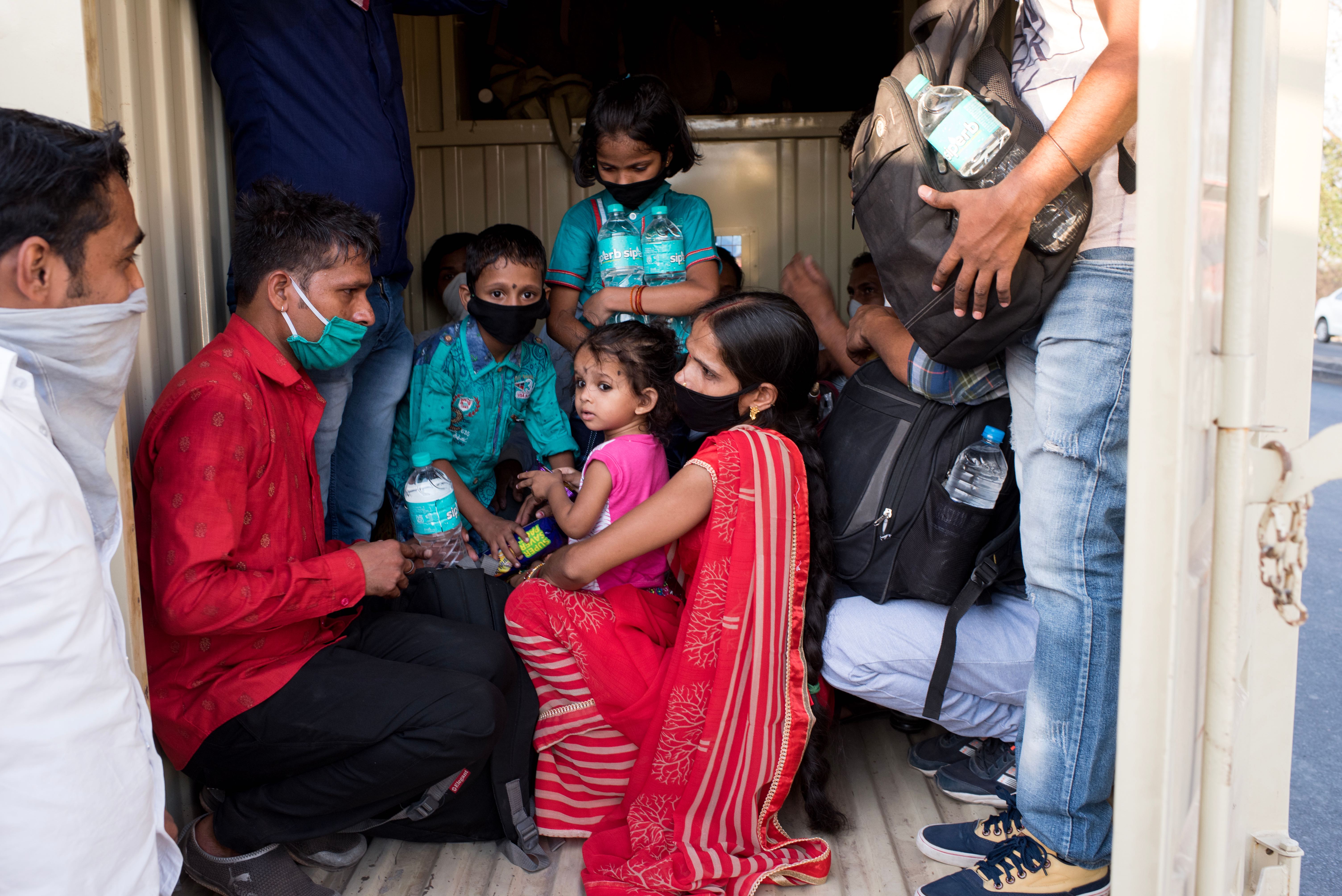 Manoej Paateel, Shutterstock
Manoej Paateel, Shutterstock
Reimagining surveys to unpack gender disparities
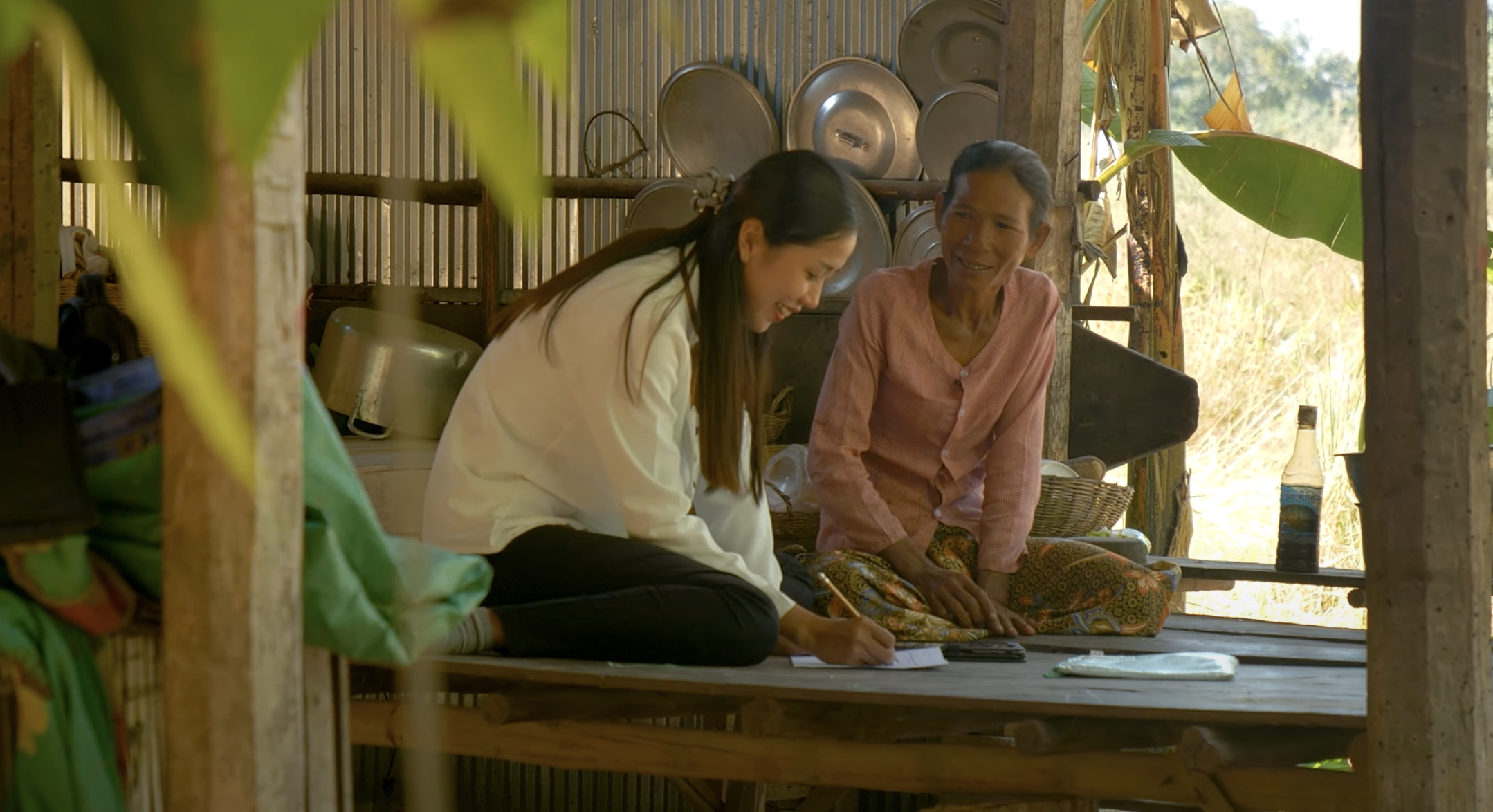
An LSMS+ interview taking place in rural Cambodia. The Cambodia National Institute of Statistics was supported by LSMS+ to collect more gender-sensitive data. Video still courtesy LSMS+.
As a complement to her academic work, Hasanbasri frequently collaborates with initiatives in the policy arena. She is a regular consultant for the World Bank’s flagship Living Standards Measurement Study Plus (LSMS+) program, which seeks to reduce bias and improve representation in household survey data in low- and middle-income countries. Working alongside her colleagues Talip Kilic, Heather Moylan, and Gayatri Koolwal, the LSMS+ aims to generate new insights about men’s and women’s economic opportunities and welfare.
Traditionally, household surveys ask the ‘household head’ to answer questions about the household as whole. In recent years, however, it has become clear that men and women often answer household survey questions very differently. Moreover, according to Hasanbasri, the identity of the person administering the survey can also generate more informative results. “Age differences, for example,” as Hasanbasri explained, “can create a ‘mother figure perception’ between the respondent and survey administrator leading women to open up more in their answers.”
“There is an abundance of data created in the process of conducting surveys that is just not being used. I’m proud of the greater attention being paid to this data due to the work of LSMS+ and how our work could shape survey methods for years to come.” – Ardina Hasanbasri
LSMS+ supports a new generation of national household surveys that can overcome these challenges, empowering national statistical offices to collect more individualized, accurate, and gender-sensitive data. Hasanbasri was drawn to the project for its innovative use of data collection to unlock as-yet-untold stories about the development process, but also because of its end goal of improving livelihoods. For policymaking to be effective, the data it is based on must reflect society’s true needs.
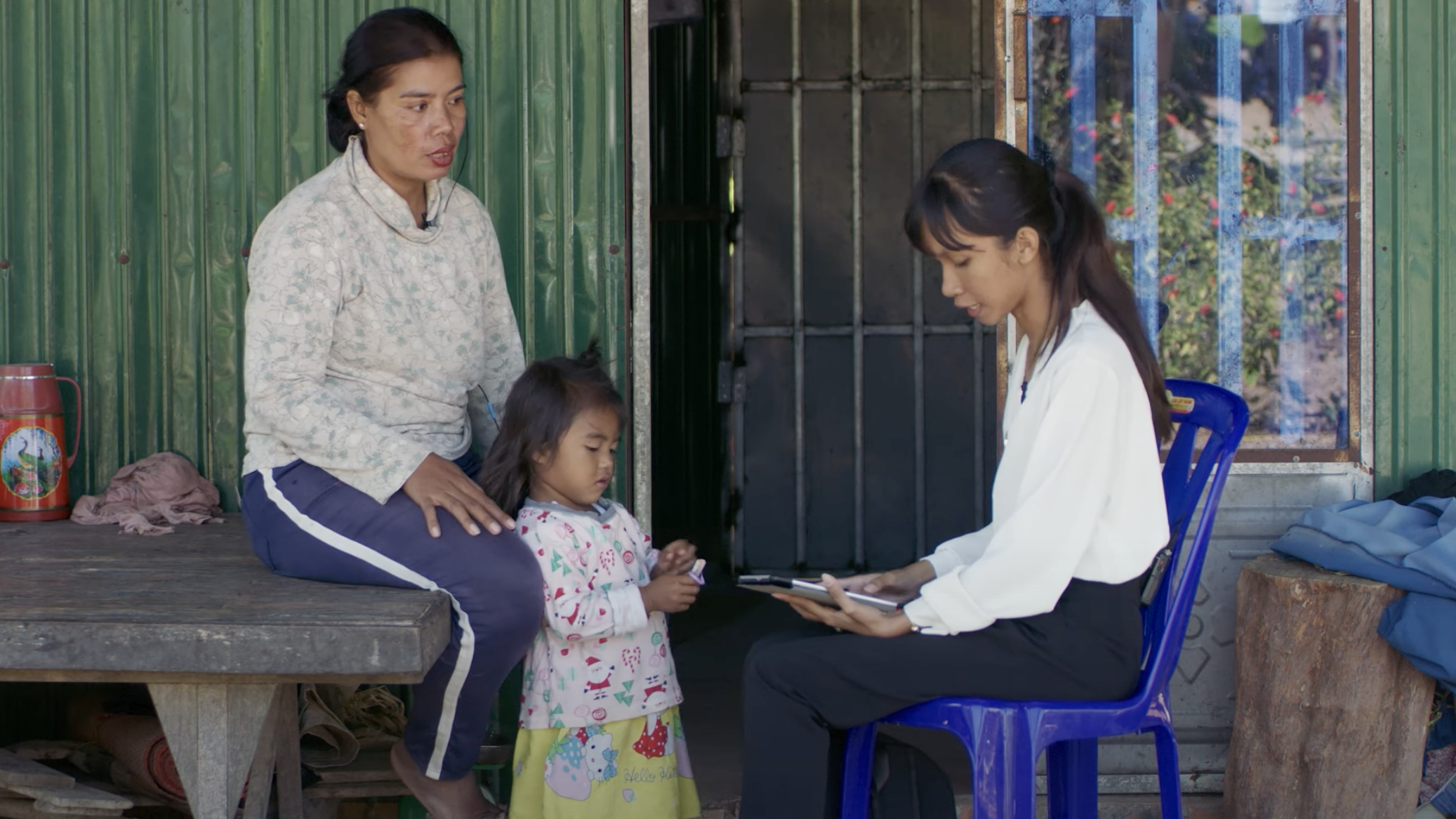
An LSMS+ interview taking place in Cambodia. Rather than just interviewing the household head, the LSMS+ program empowers national statistical offices to carry out private, individual interviews to generate more accurate information. Video still courtesy LSMS+.
According to Hasanbari’s co-author, World Bank senior economist Talip Kilic, better data collection can be a powerful driver of gender equality:
“Not every survey or data is created equal,” he said in a recent World Bank feature about LSMS+. “If data is collected in a biased or a non-representative way, the resulting policies may be flawed. We need to change the culture of household survey data collection in a way that collects more gender sensitive data.”
In addition to conducting innovative surveys, LSMS+ puts a major emphasis on building local government capacity for advanced data collection. In a recent publication, Hasanbasri and coauthors offered advice and practical guidance on how governments can upgrade their survey methodologies to gather more accurate insights on asset ownership and other issues.
Of course, significant gaps still remain – both in terms of what we know about the true nature of development challenges like landownership and our ability to measure those issues accurately. But Hasanbasri and her colleagues are at the frontier of efforts to advance our collective capabilities on these fronts. For example, she is increasingly focused on advancing paradata – that is, ‘parallel data’ collected about the survey process, including when an individual responded, whether a proxy responded on their behalf, or how long the response took. Researchers across the World Bank, along with other policy-oriented organizations, could use these approaches to generate new insights from previously overlooked patterns in the data. Such efforts could significantly improve the design of the countless household surveys that are conducted globally each year, while uncovering new findings that were previously overlooked in the data.
“There is an abundance of data created in the process of conducting surveys that is just not being used,” Hasanbasri explains. “I’m proud of the greater attention being paid to this data due to the work of LSMS+ and how our work could shape survey methods for years to come.”
Written by Bomi Okuyiga